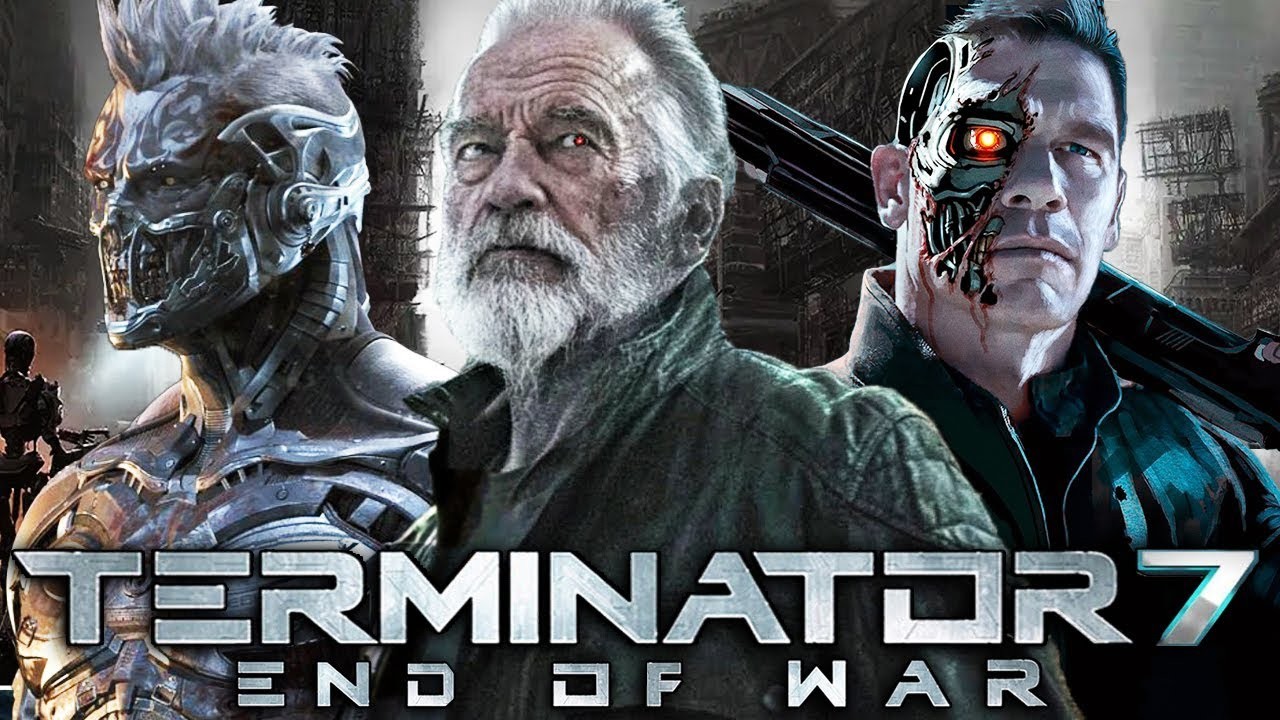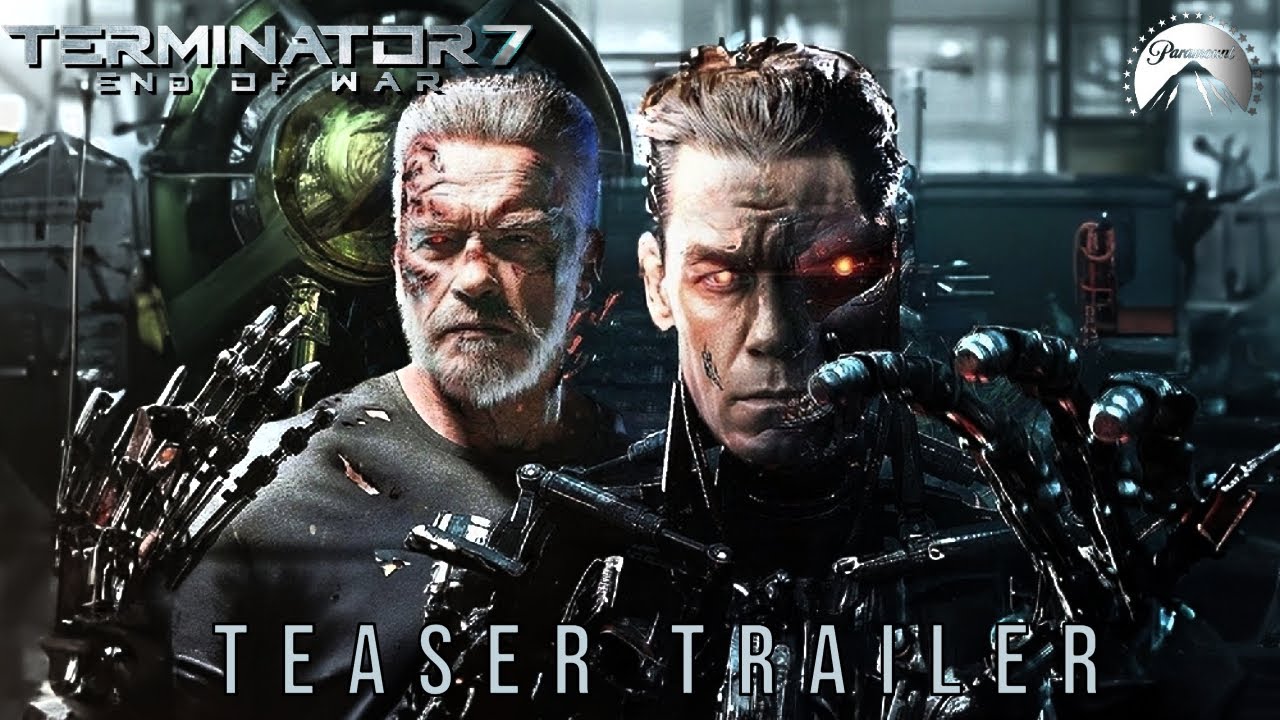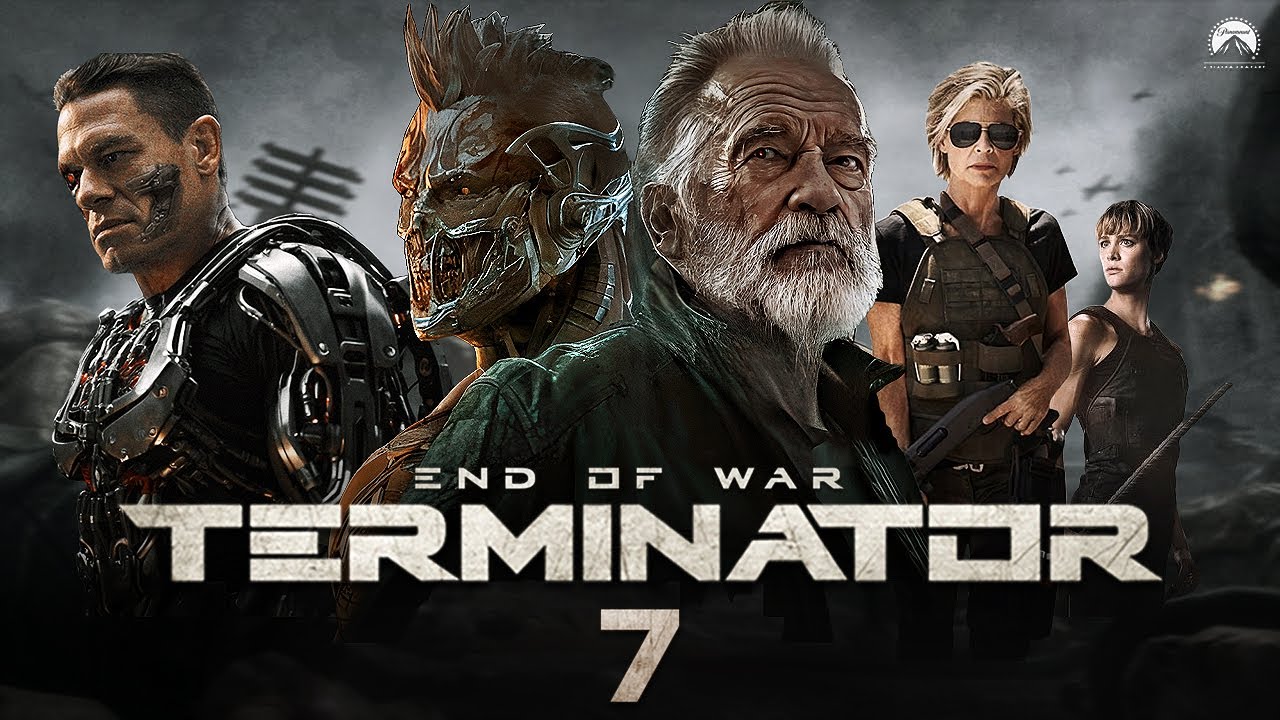Terminator 7: End of War (2025) – The Final Judgment

Some wars are fought for survival. Others are fought for the future itself. Terminator 7: End of War (2025) arrives as the most ambitious chapter of the legendary franchise, bringing decades of time-travel paradoxes, machine uprisings, and human resistance to their explosive conclusion. Where previous films showed us fragments of Judgment Day, this one dares to depict its end.
The film begins in a scorched future where humanity is fractured, Skynet (or its evolved form, Legion) reigns supreme, and the Resistance stands on the brink of collapse. John Connor is gone, Sarah Connor is scarred but unbroken, and the machines—endless, relentless—seem closer than ever to final victory. Into this chaos emerges one last mission: a desperate gamble to end the cycle of war once and for all.
At its heart, End of War is about inevitability. Can humanity truly stop Judgment Day, or is the war destined to repeat in infinite loops of sacrifice and loss? Sarah Connor embodies this question—her entire life defined by prophecy, grief, and defiance. Now older, she faces the terrifying possibility that everything she fought for was only delaying the inevitable.

The new twist comes with time itself fracturing under the strain of decades of interference. Paradoxes bleed into reality: alternate futures colliding, multiple versions of familiar characters appearing, and the horrifying possibility that Skynet has learned to weaponize time itself. The battlefield is not just Earth—it is history itself, collapsing under war.
The action is monumental. Metallic armies clash against human strongholds, aerial battles scorch ruined skies, and the return of classic Terminators—T-800s, T-1000s, and new hybrids—pushes the Resistance to its breaking point. Yet the most gripping sequences are intimate: one-on-one duels between man and machine, where every strike feels like the weight of humanity’s survival.
Arnold Schwarzenegger returns in what promises to be his final bow. His Terminator, older yet wiser, becomes both weapon and mentor, embodying the paradox of the machine that chose humanity. His journey toward sacrifice anchors the film with both gravitas and heartbreak.
Visually, the film embraces apocalyptic grandeur. Ruined cities swallowed by fire, deserts littered with machine carcasses, and battlefields where humanity makes its last stand are shot with operatic intensity. The line between man and machine blurs not only in combat but in imagery, as war erases distinctions between flesh and steel.

The score booms with metallic dread, echoing Brad Fiedel’s iconic themes while expanding into darker, mournful territory. The percussion pounds like war drums, the synths scream like machines, and the orchestral swells carry the tragic weight of a war fought too long.
Thematically, End of War asks whether humanity’s greatest strength is survival—or its refusal to surrender hope. Can the future be rewritten, or is the war itself the curse we can never escape? In its exploration of destiny versus free will, the film returns to the philosophical roots of the saga.
By its finale, the film delivers both devastation and catharsis. Blood is spilled, machines fall, and the war ends—but at unimaginable cost. Whether humanity triumphs or perishes, the cycle is broken, giving the franchise a definitive, haunting conclusion.
Ultimately, Terminator 7: End of War (2025) is more than just another entry—it is the closing chapter of a myth that has spanned generations. Brutal, emotional, and unflinching, it reminds us why the series endures: because beneath the steel and fire, it has always been about humanity’s refusal to be erased.
Related movies :
Related movies :
Related movies :
Related movies :
Related movies :
Related movies :
Related movies :











